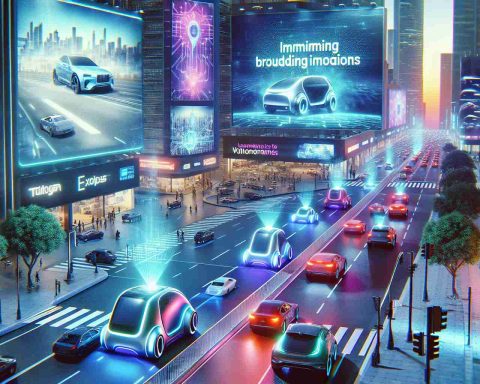As the automotive industry faces unprecedented challenges, two of Japan’s leading car manufacturers are poised for a pivotal announcement. Honda and Nissan are reportedly preparing to engage in discussions regarding a potential business integration, as revealed by various Japanese media outlets.
Both companies are expected to convene board meetings to deliberate on the integration talks. Following these discussions, a joint press event is planned, which is likely to include Mitsubishi Motors, Nissan’s alliance partner. The collaboration could alter the landscape of the auto sector, effectively establishing the third-largest automotive group in the world by sales volume, trailed only by industry giants Toyota and Volkswagen. This move marks a significant moment for the industry, reminiscent of the notable Stellantis formation in 2021.
Amid rising competition from electric vehicle trailblazers like Tesla and emerging foreign competitors, Honda and Nissan are strategizing to enhance their partnership. Reports indicate that potential collaboration may involve Honda supplying hybrid vehicles to Nissan and sharing production facilities in the UK. Recently, Nissan announced an extensive restructuring plan, cutting thousands of jobs and reducing global production to adapt to falling sales, particularly in crucial markets like China and the U.S.
Renault, the principal shareholder in Nissan, has expressed a willingness to consider a partnership, assessing the broader implications of such a merger. Meanwhile, potential interest from Taiwanese giant Foxconn has reportedly stalled after meetings with Renault took place.
Honda and Nissan Set to Transform the Automotive Industry: A New Era of Collaboration
Overview
In a pivotal moment for the automotive sector, Honda and Nissan are set to announce potential plans for a business integration. The talks, as reported by Japanese media, could significantly reshape the competitive landscape, establishing a formidable automotive group that would rank third globally in sales volume, trailing only behind Toyota and Volkswagen.
Key Developments
1. Strategic Meetings: Both Honda and Nissan are expected to hold board meetings to discuss the details of their proposed integration. This collaborative effort is likely to include alliances with Mitsubishi Motors, Nissan’s partner in a strategic alliance, indicating a broader industry shift toward consolidation.
2. Expanding Market Reach: The proposed integration comes in response to the growing competition from electric vehicle manufacturers, particularly Tesla, as well as an influx of foreign automakers. By uniting, Honda and Nissan aim to bolster their market presence and enhance their product offerings.
3. Production Collaboration: Insights from the automotive industry suggest that Honda may provide hybrid vehicle technology to Nissan, which could lead to shared production facilities in the UK. This collaboration could streamline operations and reduce costs for both manufacturers.
Market Impacts
– Establishing a Major Player: Should the integration proceed, it would position Honda and Nissan as a significant contender against current leaders, driving innovation and competition in a rapidly evolving market.
– Job Market Considerations: With Nissan’s recent announcement of a restructuring plan involving job cuts and reduced global production, the integration discussions may also lead to a reevaluation of workforce strategies.
Potential Challenges
– Renault’s Role: As the main shareholder in Nissan, Renault’s stance on the integration discussions will be crucial. The company has shown an openness to partnerships, but its strategic interests must align with those of Honda and Nissan.
– Foxconn’s Interest: Initially, Taiwanese electronics giant Foxconn expressed interest in a collaborative arrangement with Renault. However, these talks have reportedly stalled, underscoring the complexities involved in automotive partnerships.
Future Trends and Predictions
The integration between Honda and Nissan could set a precedent for other automotive manufacturers facing similar challenges. The following trends may emerge:
– Increased Collaborations: Other automakers may consider similar partnerships to enhance their competitive edge.
– Focus on Electric and Hybrid Models: Shared resources and technology could accelerate the development of innovative electric and hybrid vehicles, catering to consumer demand for environmentally friendly options.
– Global Market Strategies: As companies adapt to fluctuations in sales, particularly in lucrative markets like China and the U.S., strategic collaborations will likely become a common approach.
Conclusion
The discussions between Honda and Nissan signify more than just a partnership; they represent an essential shift in the automotive industry, as traditional manufacturers look to innovate and compete effectively against new market players. As these talks unfold, all eyes will be on their implications for the future landscape of the global automotive sector.
For more insights and updates on automotive industry trends, visit AutoWeek.









